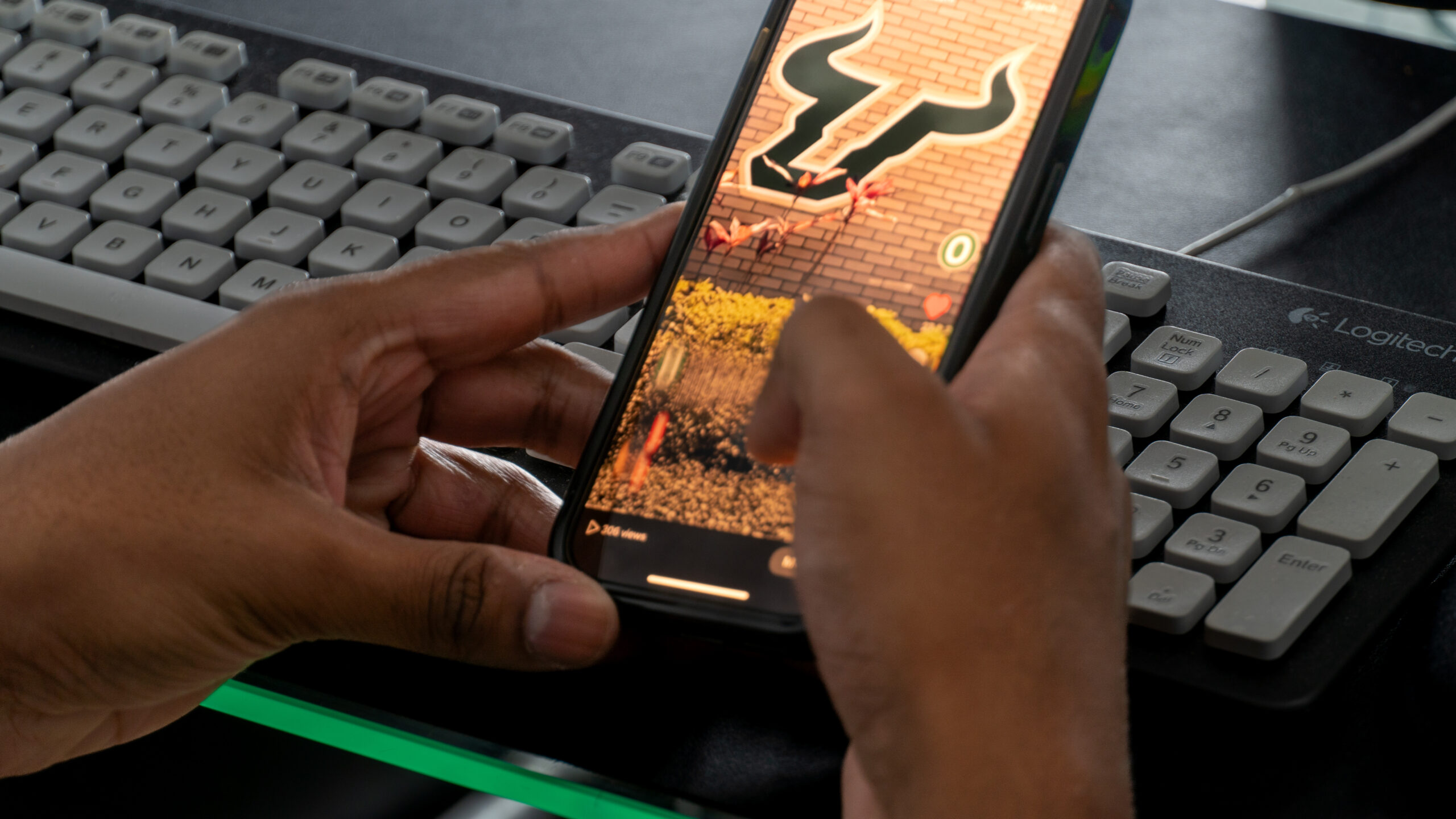USF faculty, students predict potential impact of emergency TikTok ban

In a recent effort to regulate the Chinese social media platform TikTok on college campuses, Gov. Ron DeSantis and the Board of Governors (BOG) issued an emergency policy to ban the app for state universities in order to address the growing concern with personal data privacy of American users.
The changes can be implemented “as soon as practicable” by universities, according to a March 28 Tampa Bay Times article. BOG member Alan Levine recommended that other Florida universities follow the example of UF, which instructed its student body to stop using the app in January.
Although the “Digital Bill of Rights” addresses concern for the lack of privacy and breach of it by Big Tech companies, the document focuses on the Chinese platform. The ban would prevent students from accessing TikTok while on university Wi-Fi and restrict the downloading or accessing of it on school devices.
USF is expected to comply with any bans issued by DeSantis and the BOG if cybersecurity issues are found, according to USF’s Director of Media Relations Althea Johnson.
“USF will continue to work with the Board of Governors on any regulation or guidance related to the use of technology platforms that may pose a cybersecurity threat. If there is a decision to implement restrictions, updated information will be shared with students, faculty and staff as needed,” she wrote.
The USF Faculty Senate will be meeting for an executive meeting on April 5 to discuss proceedings for a possible ban on campus, according to faculty senate president Jenifer Jasinski Schneider.
The age group of 18-29 makes up 48% of the users on TikTok, according to Pew Research. Public relations professor Kelli Burns said the visual medium is very attractive to younger users.
“I see it as an entertainment platform for young people,” Burns said. “The algorithm is so powerful and it learns all about you, putting content in front of you that you will enjoy.”
Burns said with the possible banning of TikTok on a national level, she sees more platforms integrating elements of the social media platform in their structure, like when Instagram added the “reels” feature after TikTok launched.
The popular app imposes a threat to existing American social media companies, according to journalism and digital communications professor Miyoung Chong. She said the revenue and influence of an app with 150 million active users is highly comparable to the impact Facebook or Google have on consumers.
“The most downloaded app in 2021 and 2022. Even in advertising revenue, they got $780 million, but are expecting $6.8 billion this year,” Chong said. “TikTok became a major competitor and they [Facebook and Google] don’t want to share their social media market.”
The discussions over the ban include two sides of the same coin — the protection of private data versus the protection of freedom of speech, according to Chong. She said she believes users don’t advocate for the full ban, but they do worry about their data security.
Banning access to the app completely would be the more “authoritarian” decision, according to Chong. Instead, she said the government is focusing on the foreign ownership of TikTok.
“TikTok is the most active but evil social media because it is a Chinese company. I would see [the ban] in a national way as a Chinese nation issue and not a TikTok issue. [On] a state level this is a political issue,” Chong said.
Chong also said the use of virtual provider networks (VPN) enables a user to select which location to access the internet in a country or state that did not ban the platform. She said VPNs are already being used in countries that have banned TikTok.
Sophomore computer science major Sophia Husain said she believes students might understand the reasoning behind the restriction but will find a way to use the platform either way.
“It’s not really going to affect students,” Husain said. “I never even got on the Wi-Fi on my personal phone and I know a bunch of other students who don’t either because it is not the best. So it will be banned, but I can just go on my personal data.”
The disapproval of the ban among students does not only come from losing access to the app, but about what it could mean for their first amendment rights due to the platform being partially used for social activism, Chong said.
“This arguably violates freedom of speech, constitution wise, and most young people are not happy or even strongly oppose to the dissent,” Chong said.








